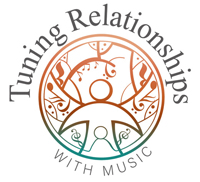Let’s face it, parenting is a challenge at the best of times! While parenting can be one of the most joyful and rewarding things we can do in our lives, it also may be the hardest. Children can be magical, wonderful, affectionate and lovable! They can also be difficult, unreasonable, tactless or obstinate! Adolescence can bring additional challenges. The normal processes of dealing with hormonal changes, rapid brain development and its accompanying emotional overwhelm can mean adolescents are hard to reason with. Their age-appropriate desire to become independent can mean they behave in ways that can feel rejecting and painful for their parents. All children need love, understanding and tolerance at these times.
All of these normal challenges are harder to manage where parents have had experiences of abuse or neglect in their own childhood. Imagine how hard it must be to grow up in a family where those you are dependent on for feeling safe in the world are the same people who can make you feel very unsafe! This can create an unresolvable paradox - it’s not safe to be too close to those I love, because I might get hurt. It’s also not safe to be too far away from those I love, because as a child I still rely on my family to be able to survive – to have my basic needs met.
As humans we are able to adapt and survive even the most difficult circumstances! Our bodies and minds help us to endure, for example by keeping us in a state of ‘high alert’ at all times so we can be ready for and possibly avoid abuse or neglect. We might ‘choose to forget’ that the person we are most reliant on for food and shelter can also hurt us, in order to protect the relationship.
These clever ways of coping, however, come at a high cost. Being on ‘high alert’ at all times is very bad for our physical, emotional and mental health and well-being. Our bodies are not designed to cope with ‘high alert’ for long periods. The stress hormones that enable us to stay in this state cause enormous wear and tear to our delicate systems, which require relaxation and rest in order to renew and recharge. ‘Choosing to forget’ allows our system to relax and rest, but this occurs at the expense of being able to stay present in the here-and-now. When people use this strategy, they may be ‘checked out’ and therefore not able to learn new things, or remember important information.
A parent who is always on ‘high alert’ may be very reactive to their child or young person. This will not be something they are easily able to control – it is an automatic response learned over and over in order to manage living where things were not safe. A parent who is often ‘checked out’ or 'choosing to forget' may not be able to set loving but firm boundaries with their child, or to protect their child from danger.
Parents who have experienced abuse or neglect need help not just to understand their unique challenges, but to experience safety with their child in a way that may never have been possible for them earlier in life. Safety isn’t something we can just think about and therefore create – it needs to be felt in our bodies. Music is a powerful but gentle way to help parents achieve a sense of safety in their bodies – more to come on this in future blogs.
For more information about this topic, you may wish to check out this excellent overview by D’Andrea et al – Pdf free to download
